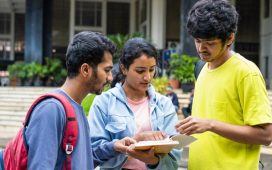Many people who want to become doctors need to decide where to go to get their MBBS. Bangladesh has emerged as one of the many choices for students from neighboring nations like India. It is an appealing destination because the country’s medical universities provide high-quality education at reasonable costs. This blog comprehensively overviews MBBS in Bangladesh fee and highlights important student considerations.
Why Choose MBBS in Bangladesh?
High-Quality Education
Numerous reputable medical colleges and universities offer top-notch education and training in Bangladesh. These organizations follow an educational program by global norms, guaranteeing that understudies get the most ideal clinical training. Major international medical organizations like the World Health Organization (WHO) and the Medical Council of India (MCI) recognize the medical programs in Bangladesh.
Affordable Fees
The affordability of MBBS programs in Bangladesh is a significant draw for students. The cost of earning an MBBS degree in Bangladesh is significantly lower than in the United States, the United Kingdom, or even India. Because of this, students who want a high-quality education without spending a lot of money can consider it.
MBBS in Bangladesh: Fee Structure
Tuition Fees
In Bangladesh, MBBS program tuition varies based on the university and location. The program costs average from $30,000 to $50,000 for the entire course. This covers things like lab fees, tuition, and other costs associated with school. Here is a breakdown of the typical educational expenses in a portion of the top clinical schools in Bangladesh:
- Dhaka Medical College: Approximately $40,000
- Bangladesh Medical College: Approximately $38,000
- Chittagong Medical College: Approximately $35,000
- Rajshahi Medical College: Approximately $32,000
- Gonoshasthaya Samaj Vittik Medical College: Approximately $33,000
Hostel and Accommodation Fees
Aside from educational expenses, understudies need to think about the expense of convenience. For international students, most Bangladeshi medical schools offer hostels. The cost for most everyday items in lodgings goes from $1,000 to $2,000 each year. This cost ordinarily covers essential conveniences like food, clothing, and utilities. However, the exact cost may vary based on the amenities and accommodation type.
Additional Expenses
Understudies should represent extra costs like books, clinical protection, and individual costs. Overall, understudies could spend an additional $1,000 to $1,500 yearly on these costs. It’s fundamental for a spending plan for these expenses to keep away from any monetary shocks throughout the review.
Scholarships and Financial Aid
International students can apply for financial aid and scholarships at several Bangladeshi medical schools. Most of the time, these scholarships are based on merit and can help students save a lot of money. Additionally, deserving students are offered scholarships by various public and private organizations. It is best to inquire about the application process and the availability of scholarships at individual universities.
Admission Process for MBBS in Bangladesh
Eligibility Criteria
Students in Bangladesh can only apply to an MBBS program if they have completed high school and received high grades in science subjects like biology, chemistry, and physics. Most universities require a minimum cumulative score of 60% in these subjects. Additionally, students must be fluent in English because English is the language of instruction.
Entrance Exams
Many universities accept students based on their high school grades and performance in science subjects, although some may require students to take an entrance exam. It is essential to examine each university’s specific admissions requirements.
Application Process
The application cycle for MBBS programs in Bangladesh is apparent. Understudies must present an internet-based application structure alongside the necessary reports, such as educational records, identification duplicates, and verification of English capability. A few colleges may likewise require an individual assertion or letters of suggestion.
Conclusion
Students seeking a high-quality education at a reasonable cost should consider earning an MBBS degree in Bangladesh. The country’s clinical colleges offer thorough projects that are internationally perceived, guaranteeing that graduates are good to go for their clinical vocations. Students can make informed decisions and plan their finances accordingly if they clearly understand the MBBS fees in Bangladesh and the additional expenses that come with them.
In conclusion, Bangladesh is an excellent place to study medicine because it offers affordable, high-quality education. Students who want to become doctors can do so without worrying about money by enrolling in an MBBS in Bangladesh. This makes it a viable and appealing option for those who want to do so.















